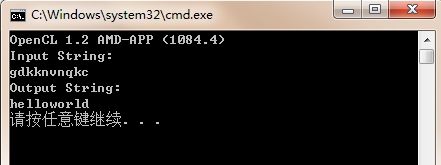- 重庆上百位老师和学生,正在使用这个国产操作系统
linux操作系统
你是否还记得,当年进学校机房前穿鞋套的经验?那时的电脑稀有昂贵,普通家庭需要几个月的工资才能买上一台,于是信息课上短暂的45分钟,成为了每个孩子走进数字世界的钥匙。随着技术的发展,电脑已经成为日常生活中不可或缺的一部分,也推动着教育领域的数字化转型,使其更好地适应社会的需要。学校信息系统的国产化改造,数字教育质量和效率的提升,成为了国产操作系统的重要目标。由新支点操作系统与OpenCloudOS社
- 我是学生,想要参与 OpenCloudOS,该怎么做?
linux
为帮助高校同学在OpenCloudOS操作系统开源社区中,掌握Linux知识,积累开源项目经历,成长为优秀的软件工程师。近日,小云为大家汇总了一份在OpenCloudOS社区的成长攻略,并正式上线2023年OpenCloudOS校园大使招募计划。在这里,你可以深入学习Linux知识,获得导师专业指导!在这里,你可以积累开源项目经历,成为闪耀的开源Star!在这里,你可以结识1000+操作系统大牛!
- 深入理解Mesa:Linux图形渲染背后的开源力量
嵌入式Jerry
Linuxlinux图形渲染开源
一、Mesa是什么?Mesa是Linux及其他类Unix系统上广泛使用的开源图形库,提供对OpenGL、OpenGLES、Vulkan、EGL、OpenCL等多种图形API的实现。简单来说,它是图形应用程序和GPU之间沟通的重要桥梁,让开发者可以借助标准的图形接口轻松进行图形渲染和3D处理。Mesa最初由BrianPaul于1993年发起,经过多年发展,如今已经成为Linux系统中不可或缺的重要组
- 创建模式-工厂方法模式(Factory Method Pattern)
qxsorz
#创建模式抽象工厂模式
江城子·乙卯正月二十日夜记梦目的动机简单工厂示例代码目的定义一个创建对象的接口,该接口的子类具体负责创建具体的对象。工厂方法模式将对象的实例化延迟到子类。简单工厂是直接在创建方法中负责所有的产品的生成,造成该方法臃肿,并且当新增产品类时会修改该方法,违背了开闭原则OpenClosePrinciple。动机创建模式其实都是对new关键字的封装和抽象,工厂方法也不例外,所以工厂方法首先解决的就是创建问
- Python 原生爬虫
eddie_k2
Pythonpython爬虫开发语言
Python描述代码描述爬网站的页面配合正则表达式设置定时任务仅学习参考,切勿使用其他用途代码importreimportscheduleimporttimefromurllib.requestimporturlopenclassSpider:def__init__(self):#初始化代码...pass#self.start_schedule()#需要爬的网址url='https://www.*
- WPF复制异常问题(OpenClipboard 失败 (异常来自 HRESULT:0x800401D0 (CLIPBRD_E_CANT_OPEN)))
互联网搬砖老肖
闲谈wpf
最近在维护WPF系统的时候发现的问题,刚刚开始自己的电脑都不能重现,后面写日志跟踪才发现问题的所在。问题主要是由于:1.在程序访问剪切板的时候,有其他程序正在占用剪切板,导致自己的程序无法访问,从而抛出异常;2.没有访问的权限,导致自己的程序无法访问。这个是之前在App.xaml.cs文件中的写法: #region / /处理异常的方法 /
- 驱动开发系列39 - Linux Graphics 3D 绘制流程(二)- 设置渲染管线
黑不溜秋的
GPU驱动专栏驱动开发
一:概述Intel的Iris驱动是Mesa中的Gallium驱动,主要用于IntelGen8+GPU(Broadwell及更新架构)。它负责与i915内核DRM驱动交互,并通过Vulkan(ANV)、OpenGL(IrisGallium)、或OpenCL(Clover)来提供3D加速。在Iris驱动中,GPUPipeline设置涉及多个部分,包括编译和上传着色器、设置渲染目标、绑定缓冲区、配置固定
- Vulkan:Vulkan基础架构与环境搭建_2024-07-20_13-37-15.Tex
chenjj4003
游戏开发网络服务器linux前端数据结构androidjava
Vulkan:Vulkan基础架构与环境搭建Vulkan简介Vulkan的历史与发展Vulkan是一个跨平台的2D和3D图形及计算API,由KhronosGroup开发。KhronosGroup是一个由多家公司组成的非营利性行业联盟,负责制定和维护多种开放标准,包括Vulkan、OpenGL、OpenCL等。Vulkan的设计目标是提供更高效、更直接的硬件访问,以减少CPU在图形渲染中的开销,同时
- OpenCL 函数clSetKernelArg()返回错误值CL_INVALID_ARG_SIZE分析和理解
Florence23
linux运维服务器
OpenCLSpec网址:TheOpenCL™Specification(khronos.org)根据spec中查询到函数clSetKernelArg()返回错误值CL_INVALID_ARG_SIZE定义如下,下面展开分析。1.clSetKernelArg()函数原型如下cl_intclSetKernelArg(cl_kernelkernel,cl_uintarg_index,size_targ
- Kotlin 2.1.0 入门教程(二十三)泛型、泛型约束、协变、逆变、不变
xvch
Kotlinkotlinandroid
out(协变)out关键字用于实现泛型的协变。协变意味着如果B是A的子类型,那么Producer可以被视为Producer的子类型。这里的Producer是一个使用泛型类型参数的类或接口,并且该泛型类型参数被标记为out。interfaceProducer{funproduce():T}openclassAnimalclassCat:Animal()funmain(){valcatProducer
- 同步&异步日志系统-设计模式
2401_82609762
设计模式
六大原则单⼀职责原则(SingleResponsibilityPrinciple)类的职责应该单⼀,⼀个⽅法只做⼀件事。职责划分清晰了,每次改动到最⼩单位的⽅法或类。使⽤建议:两个完全不⼀样的功能不应该放⼀个类中,⼀个类中应该是⼀组相关性很⾼的函数、数据的封装⽤例:⽹络聊天:⽹络通信&聊天,应该分割成为⽹络通信类&聊天类开闭原则(OpenClosedPrinciple)对扩展开放,对修改封闭使⽤建
- Windows Opencl clSetKernelArg()函数
万能的小裴同学
GPUopenclC++windowsc++opencl
WindowsOpenclclSetKernelArg()函数详细解析SettingKernelArguments函数原型cl_intclSetKernelArg(cl_kernelkernel,cl_uintarg_index,size_targ_size,constvoid*arg_value)clSetKernelArg()用于为内核的特定参数设置参数值。kernel是一个有效的内核对象。a
- Kotlin 2.1.0 入门教程(十五)继承、重写、派生类初始化顺序
xvch
Kotlinkotlinandroid
继承所有类都有一个共同的超类Any,对于没有声明超类型的类来说,Any是其默认的超类://隐式继承自Any。classExampleAny有三个方法:equals()、hashCode()和toString()。因此,所有类都定义了这些方法。默认情况下,类是final的,即它们不能被继承。若要使一个类可被继承,需使用open关键字标记它://该类可被继承。openclassBase要声明一个显式的
- Ranger Hive Service连接测试失败问题解决
一张假钞
hivehadoop数据仓库
个人博客地址:RangerHiveService连接测试失败问题解决|一张假钞的真实世界异常信息如下:org.apache.ranger.plugin.client.HadoopException:UnabletoconnecttoHiveThriftServerinstance..UnabletoconnecttoHiveThriftServerinstance..Couldnotopencli
- 分享一些免费可商用的SVG资源网站
摸五休二
前端ui
这里是一些提供免费且可商用的SVG文件的资源网站,你可以自由下载并在项目中使用:1.Undraw特点:提供丰富的插图,简洁而现代,所有插图都可以自定义颜色,适合各种场景。许可:完全免费,无需署名,允许商用。2.Openclipart特点:拥有庞大的公共领域剪贴画库,适合各种用途。许可:所有图像都在公共领域,完全免费,无需署名。3.Flaticon特点:提供丰富的图标库,大多数图标可以免费下载为SV
- RK3568 OpenHarmony4.0适配HDMI液晶屏
敲嵌入式代码的
OpenHarmonyharmonyoslinux
适配效果先看下最终适配效果视频:OpenHarmony_V40_HDMI液晶屏开发环境本文基于如下开发环境进行开发调试:硬件:RK3568开发板处理器:RK3568CPU:四核64位Cortex-A55,主频最高达2.0GHzGPU:ARMG522EE,支持OpenGLES1.1/2.0/3.2,OpenCL2.0,Vulkan1.1,支持内嵌高性能2D加速硬件NPU:支持1T算力多媒体:支持4K
- Metal:Metal与虚拟现实技术_2024-07-20_20-31-56.Tex
chenjj4003
游戏开发2vrcocoamacosobjective-c人工智能计算机视觉
Metal:Metal与虚拟现实技术Metal基础介绍Metal框架概述Metal是苹果公司开发的一个低级图形和计算编程接口,它被设计用于在iOS、macOS、tvOS和watchOS上实现高性能的图形渲染和计算任务。Metal框架提供了对GPU的直接访问,允许开发者以更高效的方式编写代码,从而在设备上实现更高质量的图形和更快的计算速度。与OpenGL和OpenCL相比,Metal减少了API的开
- 设计模式概述-24种设计模式和七大设计原则
SongYuxinZzz
Java基础java
六大设计原则1、开闭原则(OpenClosePrinciple)定义:一个软件实体如类、模块和函数应该对扩展开放,对修改关闭。问题由来:在软件的生命周期内,因为变化、升级和维护等原因需要对软件原有代码进行修改时,可能会给旧代码中引入错误,也可能会使我们不得不对整个功能进行重构,并且需要原有代码经过重新测试。解决方案:当软件需要变化时,尽量通过扩展软件实体的行为来实现变化,而不是通过修改已有的代码来
- 龙蜥社区落地开源生态发展合作倡议新进展,推出内核 kABI 和配置统一规范
操作系统开源
为共同推动做强做优做大创新操作系统生态,积极响应由龙蜥(OpenAnolis)、开源欧拉(openEuler)、鸥栖(OpenCloudOS)、开放麒麟(openKylin)以及深度(deepin)五大操作系统开源社区联合发起的开源生态发展合作倡议,龙蜥社区在操作系统构建工程落地取得新进展,彰显了龙蜥社区致力于构建一个更加开放、繁荣、安全、高效的全球开源生态系统的坚定承诺。在广泛征求操作系统企业及
- 开源生态发展合作倡议
操作系统
在信息技术发展的浪潮中,开源已成为全球创新的强劲引擎,深刻影响着各行各业的发展。今天,我们站在新的历史起点上,肩负着推动开源生态发展的重任。在此,开源欧拉(openEuler)、龙蜥(OpenAnolis)、鸥栖(OpenCloudOS)、开放麒麟(openKylin)、深度(deepin)五大操作系统开源社区携手并进,共同发起开源生态发展合作倡议,旨在书写开源生态繁荣的新篇章。在此,我们提出三点
- FPGA器件在线配置方法概述
fpga和matlab
FPGA其他fpga开发FPGA在线配置
目录1.配置电路结构和原理2.ICR控制电路软件3.几种常见的FPGA在线配置方法3.1动态部分重配置(PartialReconfiguration,PR)3.2在系统编程(In-SystemProgramming,ISP)3.3多比特流配置(Multi-BitstreamConfiguration)3.4远程更新与配置3.5使用OpenCL或HLS工具FPGA(Field-Programmabl
- OPENCL之SIMT与SIMD在架构上的主要区别是什么?
糯米宝宝
gpuopencv
SIMT(单指令多线程)与SIMD(单指令多数据)在架构上的主要区别体现在以下几个方面:执行单元的组织方式:SIMD:采用的是多数据流架构,即同一条指令同时作用于多个数据元素。这种架构特别适合于多媒体应用等数据密集型运算。SIMT:采用的是多线程架构,即同一条指令由多个线程并行执行。每个线程可以有不同的分支行为和执行路径,从而实现线程级的并行计算。软件暴露的信息:SIMD:向软件公开SIMD宽度(
- 10 自研rgbd相机基于rk3566之OPENCL加速库测试与开发
三十度角阳光的问候
openclgpu加速rk3566/rk3588核函数异构加速
OPENCL加速库测试与开发opencl加速库介绍1OpenCL概念2OpenCL程序通常包含以下几个主要组件:3opencl移植与调用:opencl加速库核函数编写1开发流程:2核函数编写接口函数定义如下:示例代码如下:opencl加速库示例代码opencl加速库介绍1OpenCL概念opencl是可以直接调用gpu资源进行加速的库,除英伟达外的gpu调用方法。例如maligpu,适用于多种ar
- 《C++与新兴硬件技术的完美融合:开启未来科技新篇章》
程序猿阿伟
c++科技开发语言
在科技飞速发展的今天,新兴硬件技术不断涌现,为软件开发带来了前所未有的机遇和挑战。C++作为一种强大而高效的编程语言,如何更好地与这些新兴硬件技术结合,成为了众多开发者关注的焦点。首先,在与GPU(图形处理单元)的结合方面,C++展现出了巨大的潜力。GPU拥有强大的并行计算能力,能够快速处理大量的数据和复杂的计算任务。通过CUDA和OpenCL等技术,C++开发者可以充分利用GPU的性能优势,实现
- Java设计模式七大原则-开闭原则
zoeil
Java设计模式
开闭原则基本介绍开闭原则(OpenClosedPrinciple)是编程中最基础、最重要的设计原则一个软件实体如类,模块和函数应该对扩展开放(对提供方),对修改关闭(对使用方)。用抽象构建框架,用实现扩展细节。当软件需要变化时,尽量通过扩展软件实体的行为来实现变化,而不是通过修改已有的代码来实现变化。编程中遵循其它原则,以及使用设计模式的目的就是遵循开闭原则。例子publicclassOcp{pu
- 设计模式-七大原则-开闭原则
一个路过的小孩
java#设计模式设计模式开闭原则
开闭原则OpenClosedPrinciple目录开闭原则基本介绍案例1运行结果分析demo输出结果基本介绍1.开闭原则OpenClosedPrinciple是编程中最基础、最重要的设计原则(ocp原则)2.一个软件的实体(eg:类),模块和函数应该对扩展开放(对提供方),对修改关闭(对使用方)用抽象构建框架,用实现扩展细节。3.当软件需求发生变化的时候,尽量通过扩展软件实体的行为实现变化,而不是
- OpenCL在移动端GPU计算中的应用与实践
m0_67544708
javaGPUOpenCL
一、引言移动端芯片性能的不断提升为在手机上进行计算密集型任务,如计算机图形学和深度学习模型推理,提供了可能。在Android设备上,GPU,尤其是高通Adreno和华为Mali,因其卓越的浮点运算能力,成为了异构计算中的重要组成部分。百度APP已经利用GPU计算加速深度模型推理和计算密集型业务。本文将介绍OpenCL的基础概念和简单编程。二、基础概念2.1异构计算异构计算指的是使用不同类型指令集和
- 设计模式 -- 七大原则(五)-- 开闭原则
认真的小羽❅
设计模式开闭原则
1基本介绍开闭原则(OpenClosedPrinciple,简称OCP)是编程中最基础、最重要的设计原则一个软件实体如类,模块和函数应该对扩展开放(对提供方),对修改关闭(对使用方)。用抽象构建框架,用实现扩展细节。当软件需要变化时,尽量通过扩展软件实体的行为来实现变化,而不是通过修改已有的代码来实现变化。编程中遵循其它原则,以及使用设计模式的目的就是遵循开闭原则。2实例2.1问题程序public
- tvm交叉编译android opencl
极乐净土0822
androidtvmndk交叉编译opencl
模型编译:#encoding:utf-8importonnximportnumpyasnpimporttvmimporttvm.relayasrelayimportosfromtvm.contribimportndkonnx_model=onnx.load('mobilenet_v3_small.onnx')x=np.ones([1,3,224,224])input_name='input1'sh
- OpenCL 图像处理函数、图像放缩和插值
陈塬升
OpenCLc++算法
1.OpenCL提供了大量可以在内核中运行的图像处理函数,它们大致可以分为以下三类:(1)Readfunctiongs--返回给定坐标上的颜色取值;(2)writefunctiongs--设定给定坐标上的颜色取值;(3)Informationfunctions--提供关于图像对象的信息,例如图像的维度以及像素属性;图像读取函数是从图像对象中读取向量,他们各自的参数基本一样。唯一的区别是函数返回的是
- 插入表主键冲突做更新
a-john
有以下场景:
用户下了一个订单,订单内的内容较多,且来自多表,首次下单的时候,内容可能会不全(部分内容不是必须,出现有些表根本就没有没有该订单的值)。在以后更改订单时,有些内容会更改,有些内容会新增。
问题:
如果在sql语句中执行update操作,在没有数据的表中会出错。如果在逻辑代码中先做查询,查询结果有做更新,没有做插入,这样会将代码复杂化。
解决:
mysql中提供了一个sql语
- Android xml资源文件中@、@android:type、@*、?、@+含义和区别
Cb123456
@+@?@*
一.@代表引用资源
1.引用自定义资源。格式:@[package:]type/name
android:text="@string/hello"
2.引用系统资源。格式:@android:type/name
android:textColor="@android:color/opaque_red"
- 数据结构的基本介绍
天子之骄
数据结构散列表树、图线性结构价格标签
数据结构的基本介绍
数据结构就是数据的组织形式,用一种提前设计好的框架去存取数据,以便更方便,高效的对数据进行增删查改。正确选择合适的数据结构,对软件程序的高效执行的影响作用不亚于算法的设计。此外,在计算机系统中数据结构的作用也是非同小可。例如常常在编程语言中听到的栈,堆等,就是经典的数据结构。
经典的数据结构大致如下:
一:线性数据结构
(1):列表
a
- 通过二维码开放平台的API快速生成二维码
一炮送你回车库
api
现在很多网站都有通过扫二维码用手机连接的功能,联图网(http://www.liantu.com/pingtai/)的二维码开放平台开放了一个生成二维码图片的Api,挺方便使用的。闲着无聊,写了个前台快速生成二维码的方法。
html代码如下:(二维码将生成在这div下)
? 1
&nbs
- ImageIO读取一张图片改变大小
3213213333332132
javaIOimageBufferedImage
package com.demo;
import java.awt.image.BufferedImage;
import java.io.File;
import java.io.IOException;
import javax.imageio.ImageIO;
/**
* @Description 读取一张图片改变大小
* @author FuJianyon
- myeclipse集成svn(一针见血)
7454103
eclipseSVNMyEclipse
&n
- 装箱与拆箱----autoboxing和unboxing
darkranger
J2SE
4.2 自动装箱和拆箱
基本数据(Primitive)类型的自动装箱(autoboxing)、拆箱(unboxing)是自J2SE 5.0开始提供的功能。虽然为您打包基本数据类型提供了方便,但提供方便的同时表示隐藏了细节,建议在能够区分基本数据类型与对象的差别时再使用。
4.2.1 autoboxing和unboxing
在Java中,所有要处理的东西几乎都是对象(Object)
- ajax传统的方式制作ajax
aijuans
Ajax
//这是前台的代码
<%@ page language="java" import="java.util.*" pageEncoding="UTF-8"%> <% String path = request.getContextPath(); String basePath = request.getScheme()+
- 只用jre的eclipse是怎么编译java源文件的?
avords
javaeclipsejdktomcat
eclipse只需要jre就可以运行开发java程序了,也能自动 编译java源代码,但是jre不是java的运行环境么,难道jre中也带有编译工具? 还是eclipse自己实现的?谁能给解释一下呢问题补充:假设系统中没有安装jdk or jre,只在eclipse的目录中有一个jre,那么eclipse会采用该jre,问题是eclipse照样可以编译java源文件,为什么呢?
&nb
- 前端模块化
bee1314
模块化
背景: 前端JavaScript模块化,其实已经不是什么新鲜事了。但是很多的项目还没有真正的使用起来,还处于刀耕火种的野蛮生长阶段。 JavaScript一直缺乏有效的包管理机制,造成了大量的全局变量,大量的方法冲突。我们多么渴望有天能像Java(import),Python (import),Ruby(require)那样写代码。在没有包管理机制的年代,我们是怎么避免所
- 处理百万级以上的数据处理
bijian1013
oraclesql数据库大数据查询
一.处理百万级以上的数据提高查询速度的方法: 1.应尽量避免在 where 子句中使用!=或<>操作符,否则将引擎放弃使用索引而进行全表扫描。
2.对查询进行优化,应尽量避免全表扫描,首先应考虑在 where 及 o
- mac 卸载 java 1.7 或更高版本
征客丶
javaOS
卸载 java 1.7 或更高
sudo rm -rf /Library/Internet\ Plug-Ins/JavaAppletPlugin.plugin
成功执行此命令后,还可以执行 java 与 javac 命令
sudo rm -rf /Library/PreferencePanes/JavaControlPanel.prefPane
成功执行此命令后,还可以执行 java
- 【Spark六十一】Spark Streaming结合Flume、Kafka进行日志分析
bit1129
Stream
第一步,Flume和Kakfa对接,Flume抓取日志,写到Kafka中
第二部,Spark Streaming读取Kafka中的数据,进行实时分析
本文首先使用Kakfa自带的消息处理(脚本)来获取消息,走通Flume和Kafka的对接 1. Flume配置
1. 下载Flume和Kafka集成的插件,下载地址:https://github.com/beyondj2ee/f
- Erlang vs TNSDL
bookjovi
erlang
TNSDL是Nokia内部用于开发电信交换软件的私有语言,是在SDL语言的基础上加以修改而成,TNSDL需翻译成C语言得以编译执行,TNSDL语言中实现了异步并行的特点,当然要完整实现异步并行还需要运行时动态库的支持,异步并行类似于Erlang的process(轻量级进程),TNSDL中则称之为hand,Erlang是基于vm(beam)开发,
- 非常希望有一个预防疲劳的java软件, 预防过劳死和眼睛疲劳,大家一起努力搞一个
ljy325
企业应用
非常希望有一个预防疲劳的java软件,我看新闻和网站,国防科技大学的科学家累死了,太疲劳,老是加班,不休息,经常吃药,吃药根本就没用,根本原因是疲劳过度。我以前做java,那会公司垃圾,老想赶快学习到东西跳槽离开,搞得超负荷,不明理。深圳做软件开发经常累死人,总有不明理的人,有个软件提醒限制很好,可以挽救很多人的生命。
相关新闻:
(1)IT行业成五大疾病重灾区:过劳死平均37.9岁
- 读《研磨设计模式》-代码笔记-原型模式
bylijinnan
java设计模式
声明: 本文只为方便我个人查阅和理解,详细的分析以及源代码请移步 原作者的博客http://chjavach.iteye.com/
/**
* Effective Java 建议使用copy constructor or copy factory来代替clone()方法:
* 1.public Product copy(Product p){}
* 2.publi
- 配置管理---svn工具之权限配置
chenyu19891124
SVN
今天花了大半天的功夫,终于弄懂svn权限配置。下面是今天收获的战绩。
安装完svn后就是在svn中建立版本库,比如我本地的是版本库路径是C:\Repositories\pepos。pepos是我的版本库。在pepos的目录结构
pepos
component
webapps
在conf里面的auth里赋予的权限配置为
[groups]
- 浅谈程序员的数学修养
comsci
设计模式编程算法面试招聘
浅谈程序员的数学修养
- 批量执行 bulk collect与forall用法
daizj
oraclesqlbulk collectforall
BULK COLLECT 子句会批量检索结果,即一次性将结果集绑定到一个集合变量中,并从SQL引擎发送到PL/SQL引擎。通常可以在SELECT INTO、
FETCH INTO以及RETURNING INTO子句中使用BULK COLLECT。本文将逐一描述BULK COLLECT在这几种情形下的用法。
有关FORALL语句的用法请参考:批量SQL之 F
- Linux下使用rsync最快速删除海量文件的方法
dongwei_6688
OS
1、先安装rsync:yum install rsync
2、建立一个空的文件夹:mkdir /tmp/test
3、用rsync删除目标目录:rsync --delete-before -a -H -v --progress --stats /tmp/test/ log/这样我们要删除的log目录就会被清空了,删除的速度会非常快。rsync实际上用的是替换原理,处理数十万个文件也是秒删。
- Yii CModel中rules验证规格
dcj3sjt126com
rulesyiivalidate
Yii cValidator主要用法分析:
yii验证rulesit 分类: Yii yii的rules验证 cValidator主要属性 attributes ,builtInValidators,enableClientValidation,message,on,safe,skipOnError
- 基于vagrant的redis主从实验
dcj3sjt126com
vagrant
平台: Mac
工具: Vagrant
系统: Centos6.5
实验目的: Redis主从
实现思路
制作一个基于sentos6.5, 已经安装好reids的box, 添加一个脚本配置从机, 然后作为后面主机从机的基础box
制作sentos6.5+redis的box
mkdir vagrant_redis
cd vagrant_
- Memcached(二)、Centos安装Memcached服务器
frank1234
centosmemcached
一、安装gcc
rpm和yum安装memcached服务器连接没有找到,所以我使用的是make的方式安装,由于make依赖于gcc,所以要先安装gcc
开始安装,命令如下,[color=red][b]顺序一定不能出错[/b][/color]:
建议可以先切换到root用户,不然可能会遇到权限问题:su root 输入密码......
rpm -ivh kernel-head
- Remove Duplicates from Sorted List
hcx2013
remove
Given a sorted linked list, delete all duplicates such that each element appear only once.
For example,Given 1->1->2, return 1->2.Given 1->1->2->3->3, return&
- Spring4新特性——JSR310日期时间API的支持
jinnianshilongnian
spring4
Spring4新特性——泛型限定式依赖注入
Spring4新特性——核心容器的其他改进
Spring4新特性——Web开发的增强
Spring4新特性——集成Bean Validation 1.1(JSR-349)到SpringMVC
Spring4新特性——Groovy Bean定义DSL
Spring4新特性——更好的Java泛型操作API
Spring4新
- 浅谈enum与单例设计模式
247687009
java单例
在JDK1.5之前的单例实现方式有两种(懒汉式和饿汉式并无设计上的区别故看做一种),两者同是私有构
造器,导出静态成员变量,以便调用者访问。
第一种
package singleton;
public class Singleton {
//导出全局成员
public final static Singleton INSTANCE = new S
- 使用switch条件语句需要注意的几点
openwrt
cbreakswitch
1. 当满足条件的case中没有break,程序将依次执行其后的每种条件(包括default)直到遇到break跳出
int main()
{
int n = 1;
switch(n) {
case 1:
printf("--1--\n");
default:
printf("defa
- 配置Spring Mybatis JUnit测试环境的应用上下文
schnell18
springmybatisJUnit
Spring-test模块中的应用上下文和web及spring boot的有很大差异。主要试下来差异有:
单元测试的app context不支持从外部properties文件注入属性
@Value注解不能解析带通配符的路径字符串
解决第一个问题可以配置一个PropertyPlaceholderConfigurer的bean。
第二个问题的具体实例是:
- Java 定时任务总结一
tuoni
javaspringtimerquartztimertask
Java定时任务总结 一.从技术上分类大概分为以下三种方式: 1.Java自带的java.util.Timer类,这个类允许你调度一个java.util.TimerTask任务; 说明: java.util.Timer定时器,实际上是个线程,定时执行TimerTask类 &
- 一种防止用户生成内容站点出现商业广告以及非法有害等垃圾信息的方法
yangshangchuan
rank相似度计算文本相似度词袋模型余弦相似度
本文描述了一种在ITEYE博客频道上面出现的新型的商业广告形式及其应对方法,对于其他的用户生成内容站点类型也具有同样的适用性。
最近在ITEYE博客频道上面出现了一种新型的商业广告形式,方法如下:
1、注册多个账号(一般10个以上)。
2、从多个账号中选择一个账号,发表1-2篇博文
